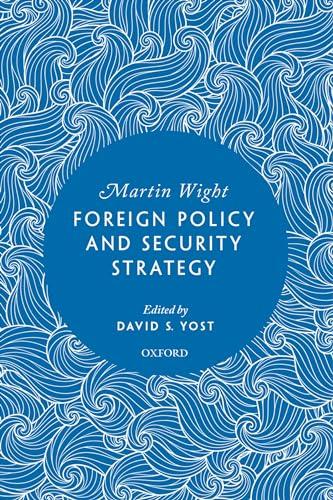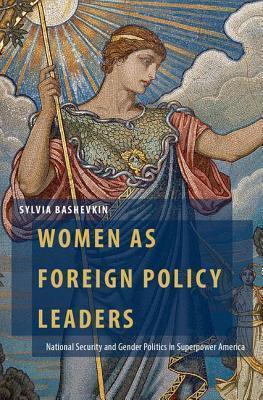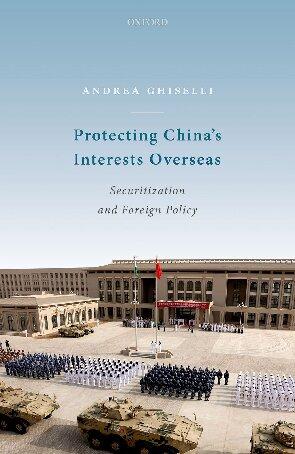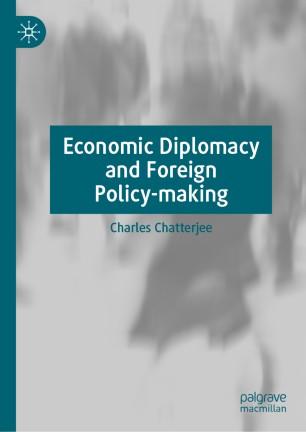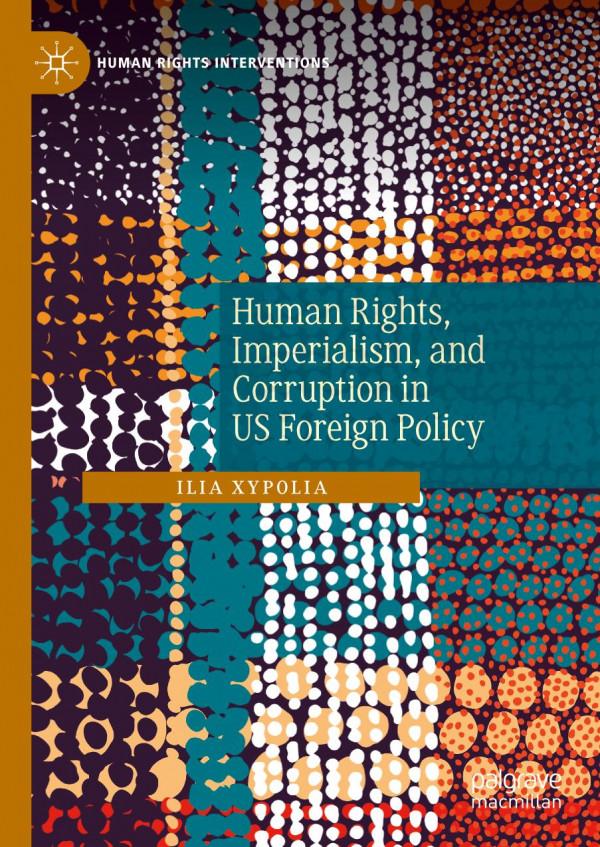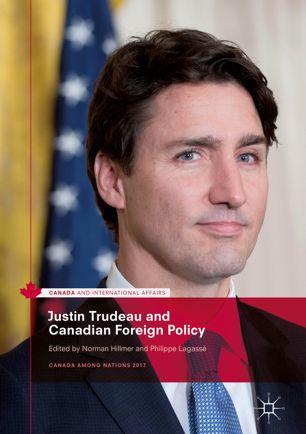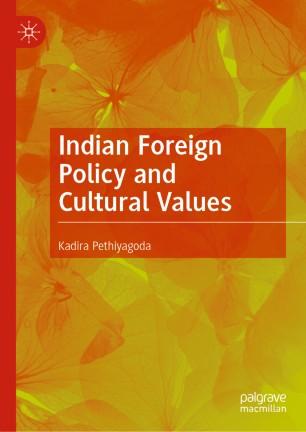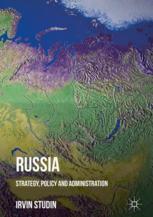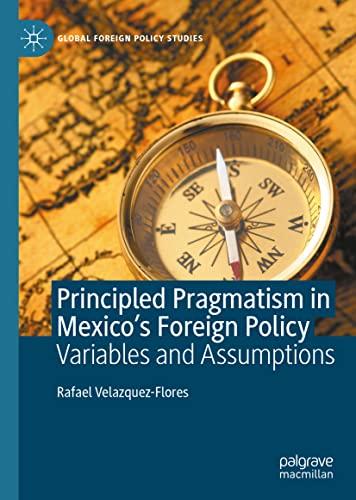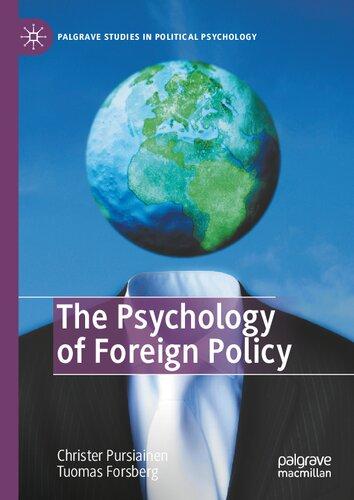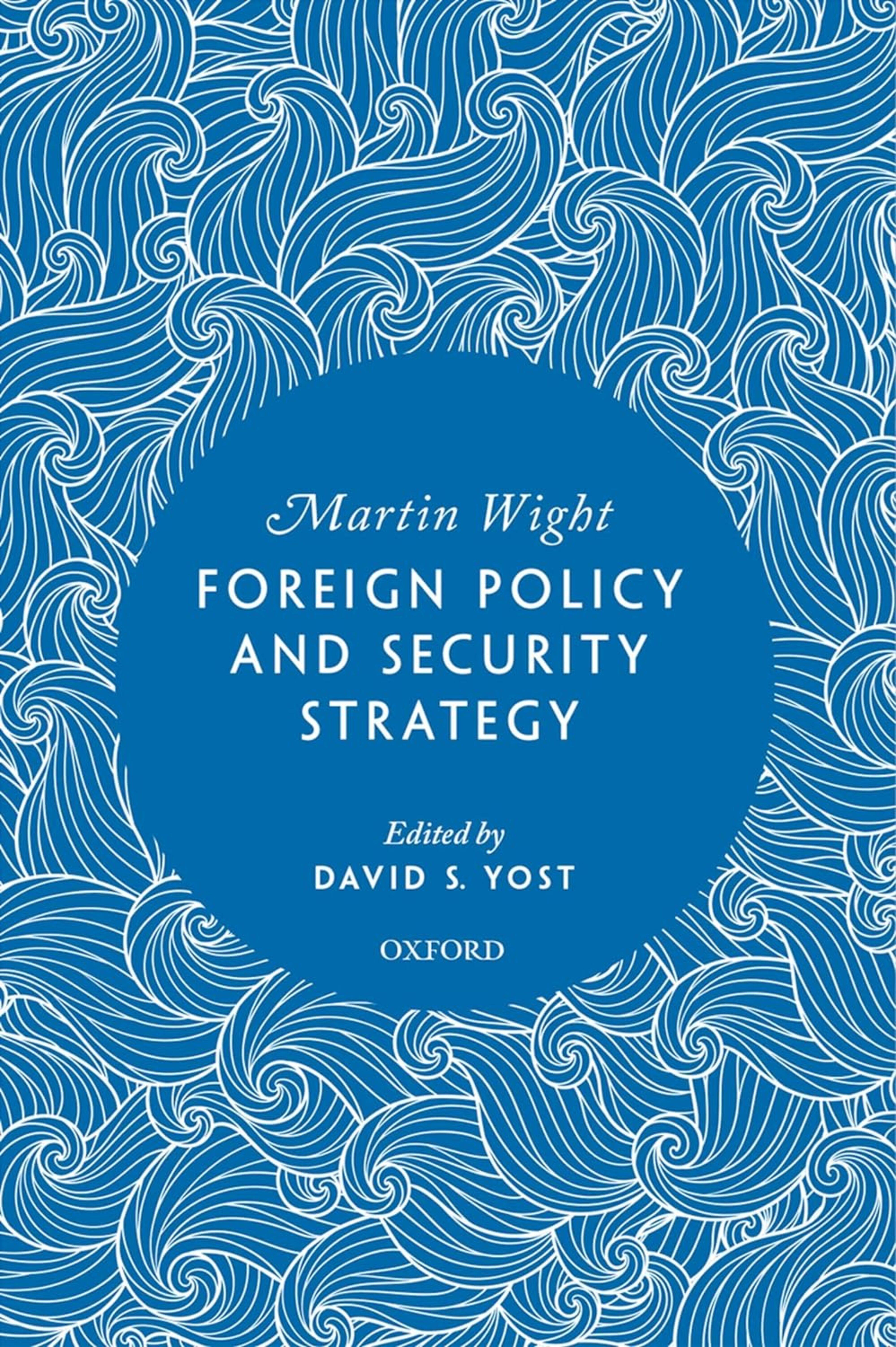Foreign Policy and Security Strategy Wight Visit to download the full and correct content document: https://ebookmass.com/product/foreign-policy-and-security-strategy-wight/
More products digital (pdf, epub, mobi) instant download maybe you interests ...
Women as Foreign Policy Leaders: National Security and Gender Politics in Superpower America Sylvia B Bashevkin
https://ebookmass.com/product/women-as-foreign-policy-leadersnational-security-and-gender-politics-in-superpower-americasylvia-b-bashevkin/
Protecting China's Interests Overseas:
and Foreign Policy Andrea Ghiselli
Securitization https://ebookmass.com/product/protecting-chinas-interestsoverseas-securitization-and-foreign-policy-andrea-ghiselli/
Economic Diplomacy and Foreign Policy-making 1st ed. Edition Charles Chatterjee
https://ebookmass.com/product/economic-diplomacy-and-foreignpolicy-making-1st-ed-edition-charles-chatterjee/
Human Rights, Imperialism, and Corruption in US Foreign Policy Ilia Xypolia
https://ebookmass.com/product/human-rights-imperialism-andcorruption-in-us-foreign-policy-ilia-xypolia/
Justin Trudeau and Canadian Foreign Policy 1st ed.
Edition Norman Hillmer
https://ebookmass.com/product/justin-trudeau-and-canadianforeign-policy-1st-ed-edition-norman-hillmer/
Indian Foreign Policy and Cultural Values 1st ed.
Edition Kadira Pethiyagoda
https://ebookmass.com/product/indian-foreign-policy-and-culturalvalues-1st-ed-edition-kadira-pethiyagoda/
Russia: Strategy, Policy and Administration 1st Edition Irvin Studin (Eds.)
https://ebookmass.com/product/russia-strategy-policy-andadministration-1st-edition-irvin-studin-eds/
Principled Pragmatism in Mexico's Foreign Policy Rafael Velazquez-Flores
https://ebookmass.com/product/principled-pragmatism-in-mexicosforeign-policy-rafael-velazquez-flores/
The Psychology of Foreign Policy 1st Edition Christer Pursiainen
https://ebookmass.com/product/the-psychology-of-foreignpolicy-1st-edition-christer-pursiainen/
ForeignPolicyandSecurityStrategy MARTIN WIGHT wasoneofthemostimportanttwentiethcenturyBritishscholars ofInternationalRelations.HetaughtattheLondonSchoolofEconomics(1949–61)andtheUniversityofSussex(1961–72),whereheservedasthefoundingDean oftheSchoolofEuropeanStudies.WightisoftenassociatedwiththeBritishCommitteeontheTheoryofInternationalPoliticsandtheso-calledEnglishSchoolof InternationalRelations.
DR DAVID S.YOST isaDistinguishedProfessorEmeritusattheUSNavalPostgraduateSchool,Monterey,California.HisbookshavebeenpublishedbyHarvard UniversityPress,theUnitedStatesInstituteofPeace,andtheInternationalInstituteforStrategicStudies.HehasheldfellowshipsfromFulbright,theNorth AtlanticTreatyOrganization(NATO),theCouncilonForeignRelations,the WoodrowWilsonInternationalCenterforScholars,andtheUnitedStatesInstituteofPeace,andhewasaseniorresearchfellowattheNATODefenseCollege inRomein2004–2007.HeearnedaPh.D.ininternationalrelationsfromthe UniversityofSouthernCalifornia.
ForeignPolicyand SecurityStrategy MARTINWIGHT Editedwithanintroductionby
DAVIDS.YOST Forewordby PAULSCHULTE GreatClarendonStreet,Oxford,OX26DP, UnitedKingdom
OxfordUniversityPressisadepartmentoftheUniversityofOxford. ItfurtherstheUniversity’sobjectiveofexcellenceinresearch,scholarship, andeducationbypublishingworldwide.Oxfordisaregisteredtrademarkof OxfordUniversityPressintheUKandincertainothercountries
©TheEstateofMartinWight2023
DavidS.Yostistheauthoroftheprefaceandtheintroduction. Themoralrightsoftheauthorhavebeenasserted. Allrightsreserved.Nopartofthispublicationmaybereproduced,storedin aretrievalsystem,ortransmitted,inanyformorbyanymeans,withoutthe priorpermissioninwritingofOxfordUniversityPress,orasexpresslypermitted bylaw,bylicenceorundertermsagreedwiththeappropriatereprographics rightsorganization.Enquiriesconcerningreproductionoutsidethescopeofthe aboveshouldbesenttotheRightsDepartment,OxfordUniversityPress,atthe addressabove
Youmustnotcirculatethisworkinanyotherform andyoumustimposethissameconditiononanyacquirer
PublishedintheUnitedStatesofAmericabyOxfordUniversityPress 198MadisonAvenue,NewYork,NY10016,UnitedStatesofAmerica
BritishLibraryCataloguinginPublicationData
Dataavailable
LibraryofCongressControlNumber:2023941736
ISBN9780192867889
DOI:10.1093/oso/9780192867889.001.0001
Printedandboundby CPIGroup(UK)Ltd,Croydon,CR04YY
LinkstothirdpartywebsitesareprovidedbyOxfordingoodfaithand forinformationonly.Oxforddisclaimsanyresponsibilityforthematerials containedinanythirdpartywebsitereferencedinthiswork.
ThisbookisdedicatedtomybelovedwifeCatherine,whosediscernment,patience, constancy,andencouragementhavemadeitpossible.
Foreword PaulSchulte
HonoraryProfessor,InstituteforConflict,Cooperation,andSecurity UniversityofBirmingham and VisitingSeniorResearchFellow,CentreforScienceandSecurity DepartmentofWarStudies,KingsCollege,UniversityofLondon and FormerDirectorofProliferationandArmsControl, FormerChiefSecretaryofStateSpeechwriter,UKMinistryofDefence BritishCommissionerontheUNCommissionsforIraqiDisarmament, UNSCOMandUNMOVIC
ThisisanextraordinarilyrichcollectionofarticlesbyMartinWight,aleading, nowunjustlyneglected,mid-twentiethcenturyBritishthinkeroninternational affairs,impeccablyeditedbyatireless,erudite,andwell-qualifiedAmerican disciple.
ProfessorDavidYosthasbeenanunusuallyactiveandtalentedscholar.Heis wellknowninNATOcirclesasanexpertontheAllianceanditsinstitutionsaswell asitssecuritypolicydilemmas.Hehasproducedanunstoppablestreamofbooks andarticlesprovidingcommentaryonAlliancestrategyanditsconstraints,andhe hasbeenafrequentandhighlyrespectedpresenceatconferencesandworkshops.
Hisinterventionshaveallfeaturedanintelligentfusionoftheoreticalinsight andpragmaticpolicyconcern,withinacoherentethicalperspectiveondeterrence, confrontation,andconflict.ThisselectionofWight’swritingsmakesitclearwhy ProfessorYostquitecorrectlyidentifiedhimasanimportantthinkerofcontinuing relevance.
MartinWightwasaleadingtheoristofwhathascometobecalledtheEnglish SchoolofInternationalRelations.¹ TheEnglishSchoolhasverybroadly,soughta middlewayinexaminingtheroleofideas,aswellasthatofmaterialcapabilities, inshapingtheconductoftheglobal“societyofstates.”
Wighthadaneasy,unintimidating,andsometimeswaspishstyle,whichmakes readinghimapositivepleasure.Thoughnoangryrebel,hewasperfectlyprepared
¹ Wighthimselfdidnotemploythe“EnglishSchool”term,whichwasintroducednineyearsafter hisdeathbyRoyE.Jones,acriticoftheapproach.RoyE.Jones,“TheEnglishSchoolofInternational Relations:ACaseforClosure,” ReviewofInternationalStudies,vol.7,no.1(January1981),pp.1–13.
toquestionthecompetenceandgoodfaithofkeyaspectsofBritishandAllied diplomacy.
TheessayspresentedheredisplaythevarietyofthemesthatWightthought throughsolucidlybeforehisuntimelydeathin1972.Anuncanny,andperhapsdepressing,numberofstructuralproblemswhichheidentifiedremainwith ustoday.Ifounditparticularlyfascinatingtofollowhisclear-eyedreactionto theforgingofthepost-SecondWorldWarworld,thecreationandelaboration oftheUnitedNations(anditssimilaritiesanddifferenceswiththeLeagueof Nations),theconstructionofNATO,theimpactofnewtechnologies(especially nuclearweapons)ontheworld,andthediscouragingrealitiesandcharadesof disarmamentdiplomacy.
TotemptthereadertosavortheinstructivepleasuresofthisbookIcandono betterthanofferupthefollowingextracts:
“ButthesuggestionthataunilateralrenunciationofwarbyGreatBritainmight turnRussia’sheartandcontributetoareignoflawseemstorepeatthepacifist illusion,familiarduringHitler’sascendancy,thatyoucanhavecollectivesecurity withoutforce,andnon-violencewithoutsuffering.”²
“Thisisausefulessay,butanessayinpoliticaltheoryratherthanpoliticalscience.Everythingthathashappenedsincethefirstedition,particularlythehistory ….ofthespecializedagenciesoftheUnitedNations,suggeststhatthefunctional developmentofinternationalorganizationcannoteradicateorby-passconflictsof interests:itpresupposestheirabsence.³
“ThehistoryofSwitzerlandandtheUnitedStatesprovesnotthatfederation abolisheswar,butthatitsubstitutescivilwarforinternationalwar.Andtheformationoffederationsshortofasingleworldfederationwouldnotabolishinternational warbutwouldonlyincreasethesizeoftheunitswhichcontinuedtoliveinastate ofanarchy.”⁴
“Howdifferentisthiscoolanalysisinlanguageofstudiedrestraint,fromthecant andself-deceptionthataccompaniedtheestablishmentoftheUnitedNations,the disagreeablelackofcandouroftheGreatPowerstatementatSanFrancisco,the lackofrealismoftheofficialBritishCommentary.”⁵
² ReviewofJohnMiddletonMurry, TrustorPerish (Rickmansworth:AndrewDakers,1946), InternationalAffairs,vol.22,no.4(October1946),p.542,reproducedinthecurrentvolume.
³ ReviewofDavidMitrany,AWorkingPeaceSystem,AnArgumentfortheFunctionalDevelopmentof InternationalOrganization,fourthedn(London:NationalPeaceCouncil,1946),InternationalAffairs, vol.23,no.3(July1947),p.384,reproducedinthecurrentvolume.
⁴ ReviewofC.E.M.Joad, ConditionsofSurvival (London:FederalUnion,1946), International Affairs,vol.23,no.1(January1947),p.8,reproducedinthecurrentvolume.
⁵ ReviewofJ.L.Brierly, TheCovenantandtheCharter,TheHenrySidgwickMemorialLecture atNewnhamCollege,Cambridge,onNovember30,1946(Cambridge:CambridgeUniversityPress, 1947),InternationalAffairs,vol.23,no.3(July1947),pp.381–382,reproducedinthecurrentvolume.
“But,ofcourse,disarmamentwasamisnomer.Whatwasinquestionwasan agreedreductionofarmaments;andthisraisedtheunsolvedandperhapsinsolublequestionofascaleofmeasurementfordifferentkindsofarmaments.SirHartley Shawcrosssaidherelastmonththatthearmamentsdiscussionsraisedrealhopes amongthedelegatesoftheminorpowers.Witheveryrespect,andwithfarless authority,Icannotrecordthesameimpression.Idonotknowofanybodywhodid notregardthemwithscepticism.…Thecontroversysettleddownintoacleavage betweentheWesternPowers,wholooktoanevolutionaryinternationalsystemwith graduallywideningscope,andtheSovietblocwhichinsistsonthejealousretentionofnationalsovereignty.Theresolutionfinallyarrivedatwasaportmanteauof everybody’spointsofviewinsteadofaselection.FortheWesternPowersitseemedto havethegermsofasystemofinternationalinspection;fortheSovietBlocitretained theveto.”⁶
“TherootofthismatteristhatRussiawillnotentrusthervitalintereststoan internationalorganisationinwhichsheisinaminorityposition.”⁷
“HavetheWesternPowersanyinterestsintheSecurityCouncil,oruseforit? ItprovidesacentreforAnglo-Americancollaboration.TheUNhasplayedan immenselyimportantpartinclearingtheU.S.ofisolationismandeducatingAmericanstotaketheirpositionasaleadingworldpower.Theyarelearningasenseof responsibility.TheAmericanpeoplereallydobelieveintheUN,thoughtheyare nowbecomingdisillusioned.TheUNisanAmericaninstitution.(Itisdifficultto understandwhyRussiaagreedtotheUNbeingsetupintheUS)Anyorganization setupintheUSbecomesAmerican.ByalphabeticalaccidenttheUKandtheUS sitsidebysideintheAssembly;thisgivesgreatopportunityforAnglo-American cooperation.”⁸
“Thisclashandinter-penetrationoftwoblocsinoneworldisofcoursean unpleasantpicture,chieflybecauseitseemstodepriveustoagreatextentofour freedomofaction.Thereseemtometobetwoconclusions.Thefirstisfamiliar enough,butitcannotbesaidtoooften.TheWestmayhavenodiplomaticelbowroominitsrelationswiththeSovietbloc,butithasasmuchfreedomasiteverhad tosettleitsowninternalaffairs.Andthemoresuccessfulitisindoingthis,according toitsownprinciples,thelessideologicalwarfareandpenetrationfromtheSoviet
⁶ “TheUnitedNationsAssembly,”AddressattheRoyalInstituteofInternationalAffairsonMarch 6,1947,reproducedinthecurrentvolume.
⁷ “TheUnitedNationsAssembly.”
⁸ “TheSecurityCouncil,”presentationaspartofTheUnitedNations,anAdvancedCourseonInternationalAffairsarrangedinconjunctionwiththeEducationDepartment,Admiralty,theDirectorate ofArmyEducation,WarOffice,andtheDirectorateofEducationalService,AirMinistry(London: RoyalInstituteofInternationalAffairs,ChathamHouse,September29–October1,1949),pp.4–8, reproducedinthecurrentvolume.
blocwilltherebeontheWesternsideofthefence.Thesecondconclusionislessoften realised.”⁹
“Theconclusionisthatissuesofpeaceandwarareunlikelytobedecidedby theSecurityCouncilbut,asalwaysinthepast,bytheoperationofthebalanceof power.”¹⁰
“Asthecorollaryofthedoctrinethatthevetoistheweaponoftheminority,Vyshinskyalsoformulatedanotherdoctrine,whoserootsaredeepinMarxist thought:thatamajorityintheUnitedNationsisaminorityintheworld,and that ‘animmensemajoritythroughouttheworldstandsbehindtheminorityin theUnitedNations.’ Tothisassumedaudience,vastandunseen,Sovietdiplomacy skilfullyappealed.ItwasinthehopeofseducingitthatStalin,duringthesecond phaseoftheUnitedNations’history,developedtheWorldPeaceMovement,which wasdeliberatelyconceivedasanalternativeinternationalorganizationtoaUnited NationsdominatedbyAmerica.Andthegreaterpartofthe ‘worldmajority’ is providedbythehave-notpowers.”¹¹
“Eisenhower’sfrequentlyquotedsaying,‘Thereisnoalternativetopeace,’to describethenewsituationwearenowin,concealsratherthanrevealsthechanges thathaveoccurred.Ininternationalaffairseverycountryhasalwayshad,inprinciple,twoalternativestopeace.Oneissubmission;theotheriswar.Foreignpolicyhas alwaysswunguneasilywithinthetriangleofthesethreeultimatepoints—peace, whichisfreedomatthepriceofvigilance;war,whichischoseninthehopeoffreedom(oraggrandisement)atthepriceofstruggle;andsubmission,whichpresents itselftoeyesweariedbyvigilanceorstruggleasreposeperhapsworthpurchasing atthepriceoffreedom.Thedifferencesmadebytheadventofnuclearweaponsare two:(a)thechoiceofwarnowappearsmorelikeannihilationratherthanfreedom atthepriceofstruggle;and(b)submissionaccordinglyismadetoseemarather lessdisadvantageousalternativethanithastraditionallybeen.”¹²
“Sincedisarmamentispartofthecantofpopularpolitics,disarmamentproposalsarepartofpoliticalwarfare,Governmentsinputtingforwarddisarmament proposalsareconcerned,first,tomakeagoodimpressionontheirownconstituents,andsecondly,toenhancetheirowninfluenceandperhapsembarrasstheir opponentsininternationalaffairs.”¹³
⁹ “TwoBlocsinOneWorld,”commentaryforaBBCHomeServicebroadcast,October21,1947, reproducedinthecurrentvolume.
¹⁰ “TheSecurityCouncil.”.
¹¹ “ThePowerStrugglewithintheUnitedNations,”inDemocracyonTrial,Proceedingsofthe InstituteofWorldAffairs,33rdsession,December9–12,1956(LosAngeles,California:Universityof SouthernCalifornia,1957),pp.247–259,reproducedinthecurrentvolume.
¹² “HasScientificAdvanceChangedtheNatureofInternationalPoliticsinKind,NotMerelyin Degree?”paperpresentedtotheBritishCommitteeontheTheoryofInternationalPolitics,January 8–11,1960,reproducedinthecurrentvolume.
¹³ “ArmsRaces,”undatednotesfoundinWight’spapersintheArchivesoftheLibraryattheLondon SchoolofEconomics,reproducedinthecurrentvolume.
Anyoneinterestedinthemechanismsofinternationalaffairs,andthedevelopment ofideastounderstandthem,willbenefitfromthisbook.Thosenotaddictedtothe barbaricquasi-scientificterminologyofcontemporaryInternationalRelationswill alsothoroughlyenjoyitsstyleandlucidity.Weshouldthereforebedoublygrateful toProfessorYostforrescuingandservinguptheselastinginsights,toaddtothe stockofsanecommentaryontheoriginsandprospectsofourpresentdilemmas. WeneedthatwisdommorethaneverastheAlliancecoordinatesitsreactionsto Russia’slatestwaronUkraineandasthewiderworldtriestounderstandtherules ofthenewhistoricalperiodwehaveentered.Thisbookremindsusthatweare thepoorerfornolongerhavingMartinWightwithustoaddhisunillusioned,but neverdespairing,viewsdirectlytoourera’stransfixingdebates.
Preface:MartinWight’sScholarlyStature byDavidS.Yost
MartinWight(1913–72)was,asSirAdamRobertsremarked,“perhapsthe mostprofoundthinkeroninternationalrelationsofhisgenerationofBritish academics.”∗,¹
Wight’sprofessionalcareermaybesummedupinafewlines:graduation in1935fromHertfordCollege,Oxford,withfirst-classhonorsinmodernhistory;researchstaffattheRoyalInstituteofInternationalAffairs,1937–38;senior historymasteratHaileyburyCollege,1938–41;researchstaffatNuffieldCollege,Oxford,1941–46;diplomaticandUnitedNationscorrespondentfor The Observer,London,1946–47;researchstaffattheRoyalInstituteofInternational Affairs,1947–49;readerininternationalrelations,LondonSchoolofEconomics, 1949–61;visitingprofessor,UniversityofChicago,1956–1957;andprofessorof historyandfoundingdeanoftheSchoolofEuropeanStudies,UniversityofSussex (1961–72).²
Amanofwide-ranginginterestsandgreatlearning,withacommandofGreek andLatinaswellasmodernEuropeanlanguages,WightwroteaboutBritishcolonialhistory,Europeanstudies,internationalinstitutions,thehistoryandsociology ofstates-systems,thephilosophyofhistory,religiousfaithandhistory,andthe
∗ ThisprefaceborrowsfromDavidS.Yost,“Introduction:MartinWightandPhilosophersofWar andPeace,”inMartinWight,FourSeminalThinkersinInternationalTheory:Machiavelli,Grotius,Kant andMazzini,GabrieleWightandBrianPorter,eds.(London:OxfordUniversityPress,2005).
¹ AdamRoberts,“Foreword,”inMartinWight, InternationalTheory:TheThreeTraditions,edited byGabrieleWightandBrianPorter(LeicesterandLondon:LeicesterUniversityPressfortheRoyal InstituteofInternationalAffairs,1991),p.xxiv.
² ThemostvaluablesourcesonMartinWight’slifeandprofessionalcareerincludethetwostudiesbyHedleyBull:“Introduction:MartinWightandtheStudyofInternationalRelations,”inMartin Wight, SystemsofStates (London:LeicesterUniversityPress,1977),pp.1–20;and“MartinWightand theTheoryofInternationalRelations,” BritishJournalofInternationalStudies,vol.2,no.2(1976), pp.101–116;thechapterentitled“MartinWight(1913–1972):TheValuesofWesternCivilization”in KennethW.Thompson, MastersofInternationalThought:MajorTwentieth-CenturyTheoristsandthe WorldCrisis(BatonRougeandLondon:LouisianaStateUniversityPress,1980),pp.44–61;thechapter entitled“MartinWight”inTimDunne, InventingInternationalSociety:AHistoryoftheEnglishSchool (Houndmills,Basingstoke,andLondon:MacmillanPress,1998),pp.47–70;theentrybyHarryG.Pitt inthe OxfordDictionaryofNationalBiography (2004),maybefoundat http://www.oxforddnb.com/ view/article/38935;thebookbyIanHall, TheInternationalThoughtofMartinWight (NewYork:PalgraveMacmillan,2006);andthesurveybyIanHall,“MartinWight:ABiographicalOverviewofhis LifeandWork,”availableatthewebsiteoftheMartinWightMemorialTrust,maybefoundat http:// www.mwmt.co.uk/
theoryandphilosophyofinternationalpolitics(notablywithregardtoethics,ideology,thebalanceofpower,andthecausesofwar),amongothersubjects.Much ofhisinfluencehasstemmedfromhislecturesonthetheoryandphilosophyof internationalpoliticsattheLondonSchoolofEconomicsinthe1950s.
Wight’scontinuingprominencehasalsoderivedfromtheattentionaccorded tothe“EnglishSchool”sincethe1980s.Heiswidelyregardedasanintellectual ancestorandpath-breakerofthe“EnglishSchool”ofinternationalrelations,even thoughhedidnotemploythisterm.³ Theterm“EnglishSchool”didnotarise untilnineyearsafterWight’sdeath,whenitwasgivencurrencybyRoyJonesin apolemicalarticlein1981.⁴ Thereseemstobenogenerallyaccepteddefinition oftheEnglishSchool,however.Thetermisusuallyconstruedassignifyingan approachtothestudyofinternationalpoliticsmorerootedinhistoricallearning thaninthesocialsciences.Wight’sachievementsareconsistentwiththisbroad definition.
SomeobserverstracetheEnglishSchool’soriginstotheworkinthemid-1950s andbeyondoftheBritishCommitteeontheTheoryofInternationalPolitics,to whichWightmademajorcontributions,alongwithHerbertButterfield,Adam Watson,HedleyBull,andothers.Inthisregard,thesubtitleofBrunelloVigezzi’s comprehensivestudyistelling: TheBritishCommitteeontheTheoryofInternationalPolitics(1954–1985):TheRediscoveryofHistory. ⁵ However,TimDunne’s informativestudyoftheEnglishSchooldevotesachaptertoE.H.Carr,whowas notamemberofthiscommittee.AsDunnepointsout,CarrplayedaroleinfosteringtheemergenceoftheEnglishSchoolby“broadeningthedisciplineawayfrom itslegalinstitutionalistorigins,”confirming“recognitionthatInternationalRelationscouldnotbeassimilatedtothemethodsofthephysicalsciences,”bringing “togetherhistory,philosophyandlegalthinking(albeitinacriticalway),”andprovoking“writerslikeMartinWightintoseekinga viamedia betweenrealismand
³ See,amongothersources,AndrewLinklaterandHidemiSuganami, TheEnglishSchoolofInternationalRelations:AContemporaryReassessment (Cambridge,England:CambridgeUniversityPress, 2006);WilliamBain,“AreThereAnyLessonsofHistory?TheEnglishSchoolandtheActivityofBeing anHistorian,” InternationalPolitics,vol.44(2007),pp.513–530;CorneliaNavari, TheorisingInternationalSociety:EnglishSchoolMethods (London:PalgraveMacmillan,2009);andBarryBuzan, An IntroductiontoEnglishSchoolofInternationalRelations:TheSocietalApproach (Cambridge,England: PolityPress,2014).
⁴ SeeRoyE.Jones,“TheEnglishSchoolofInternationalRelations:ACaseforClosure,” Reviewof InternationalStudies,vol.7(January1981).
⁵ BrunelloVigezzi, TheBritishCommitteeontheTheoryofInternationalPolitics(1954-1985):The RediscoveryofHistory (Milano:EdizioniUnicopli,2005).
utopianism.”⁶ Carr’smostprominentcontributiontointernationalrelationstheoryhasremainedhislandmarkwork,TheTwentyYears’Crisis1919–1939.⁷Wight’s criticalreviewofCarr’sbookiswidelycited,anditisincludedinthiscollection.⁸ HedleyBulllistedWightamongscholarspursuinga“classicalapproach”totheorizingaboutinternationalpolitics,⁹ butWighthimselfappearstohaverefrained fromcategorizinghismethodology.Theclosesthecametodoingso,itseems,was intheprefacethatheandHerbertButterfieldcomposedfortheirco-editedvolume, DiplomaticInvestigations.InthatprefaceButterfieldandWightdescribed theoutlookoftheBritishCommitteeontheTheoryofInternationalPolitics,comparedwiththatoftheirAmericancounterparts,as“probably…moreconcerned withthehistoricalthanthecontemporary,withthenormativethanthescientific, withthephilosophicalthanthemethodological,withprinciplesthanpolicy.”The participantsintheBritishCommittee,Butterfield,andWightadded,
havetendedtosupposethatthecontinuitiesininternationalrelationsaremore importantthantheinnovations;thatstatecraftisanhistoricaldepositofpractical wisdomgrowingveryslowly;thatthepolitical,diplomatic,legal,andmilitary writerswhomightlooselybetermed“classical”havenotbeensupersededasa resultofrecentdevelopmentsinsociologyandpsychology,andthatitisauseful enterprisetoexplorethecorpusofdiplomaticandmilitaryexperienceinorder toreformulateitslessonsinrelationtocontemporaryneeds.¹⁰
Thisfellshortofarousingmanifesto,butitmadeclearapreferenceforempiricalhistoryandnormativephilosophyoversocialscienceandimmediatepolicy relevance.Thecollectionofpapersin DiplomaticInvestigations remainsatouchstoneforadmirersoftraditionalapproachestothestudyofinternationalpolitics, regardlessofwhethertheyclaimallegiancetothe“EnglishSchool.”¹¹
Wightwasmoreinterestedinanalyzingmoralandphilosophicalquestions raisedbyinternationalpoliticsthanindebatingimmediatepolicydecisionsor assessingcurrentacademicschoolsofthought.Hehadatalentforbringing
⁶ SeeTimDunne, InventingInternationalSociety:AHistoryoftheEnglishSchool (Basingstokeand London:MacmillanPressinassociationwithSt.Antony’sCollege,Oxford,1998),p.38.
⁷ E.H.Carr, TheTwentyYears’Crisis1919-1939:AnIntroductiontotheStudyofInternational Relations (London:Macmillan,1939).
⁸ MartinWight,“TheRealist’sUtopia,” TheObserver,July21,1946.
⁹ SeeHedleyBull,“InternationalTheory:TheCaseforaClassicalApproach,”inKlausKnorrand JamesN.Rosenau,eds.,ContendingApproachestoInternationalPolitics(Princeton,NJ:PrincetonUniversityPress,1969),pp.20–21.Bull’sfamousarticlewasfirstpublishedin WorldPolitics,vol.18,no.3 (April1966).
¹⁰ HerbertButterfieldandMartinWight,eds., DiplomaticInvestigations:EssaysintheTheoryof InternationalPolitics (London:AllenandUnwin,1966),prefacebyButterfieldandWight,pp.12–13.
¹¹ Forasystematicandilluminatingstudy,seeIanHallandTimDunne,“IntroductiontotheNew Edition,”inHerbertButterfieldandMartinWight,eds.,DiplomaticInvestigations:EssaysintheTheory ofInternationalPolitics (Oxford,England:OxfordUniversityPress,2019).
insightsfromhistory,philosophy,biography,andliteraturetobearuponpolitical thinkingandbehavior.
Duringhislifetime,Wight’smostextensivepublicationsconcernedthehistory ofBritishcolonialism,¹² andhisotherpublicationswerelimitedtoapamphlet andsomearticlesandbookchapters.¹³ Onlyonebookchapter—hisclassicessay, “WesternValuesinInternationalRelations”—outlinedWight’spath-breaking organizationofthehistoryofWesternthinkingaboutinternationalpoliticsinto threecategories,ortraditions(theRealist,orMachiavellian;theRevolutionist,or Kantian,andtheRationalist,orGrotian);andthisessayfocusedonwhatWight calledtheRationalist,orGrotian,tradition.
Wightpublishedrelativelylittleinhislifetime,HedleyBullobserved,because hewas“aperfectionist…oneofthosescholars—today,alas,sorare—who(touse aphraseofAlbertWohlstetter’s)believeinahighratioofthoughttopublication.”¹⁴
OwingtoWight’sperfectionism,heleftmanyworksunfinishedwhenhedied attheageoffifty-eight.Hiswidow,GabrieleWight,andhisformercolleaguesand studentshavepreparedfourbooksforposthumouspublication: SystemsofStates in1977,¹⁵ PowerPolitics in1978,¹⁶ InternationalTheory:TheThreeTraditions in 1991,¹⁷ and FourSeminalThinkersinInternationalTheory:Machiavelli,Grotius, KantandMazzini in2005.¹⁸
Wight’slectureswontheenduringadmirationofhislisteners.AsBulltestified in1976,“Theselecturesmadeaprofoundimpressiononme,astheydidonall
¹² MartinWight, TheDevelopmentoftheLegislativeCouncil,1606-1945 (London:FaberandFaber, 1946); TheGoldCoastLegislativeCouncil (London:FaberandFaber,1947);and BritishColonial Constitutions1947 (Oxford:ClarendonPress,1952).
¹³ Seeespecially:MartinWight, PowerPolitics (London:RoyalInstituteofInternationalAffairs, 1946);“Germany,”“EasternEurope,”and“TheBalanceofPower,”inArnoldToynbeeandFrankT. Ashton-Gwatkin,eds., TheWorldinMarch1939 (London:OxfordUniversityPressfortheRoyal InstituteofInternationalAffairs,1952);“WesternValuesinInternationalRelations,”“TheBalanceof Power,”and“WhyIsThereNoInternationalTheory?”inHerbertButterfieldandMartinWight,eds., DiplomaticInvestigations:EssaysintheTheoryofInternationalPolitics (Cambridge,Mass.:Harvard UniversityPress,1966,andLondon:GeorgeAllenandUnwin,1966);and“TheBalanceofPowerand InternationalOrder,”inAlanJames,ed., TheBasesofInternationalOrder:EssaysinHonourofC.A.W. Manning (London:OxfordUniversityPress,1973).
¹⁴ HedleyBull,“MartinWightandtheTheoryofInternationalRelations,”BritishJournalofInternationalStudies,vol.2(July1976),p.101.Thisessayisreproducedatthebeginningof International Theory:TheThreeTraditions inaslightlyabridgedform.Thecitationshererefertothecomplete originalversion.
¹⁵ MartinWight, SystemsofStates,HedleyBull,ed.(London:LeicesterUniversityPressinassociationwiththeLondonSchoolofEconomicsandPoliticalScience,1977).Forbackground,seeDavidS. Yost,“NewPerspectivesonHistoricalStates-Systems,” WorldPolitics,vol.32,no.1,October1979),pp. 151–168.
¹⁶ MartinWight,PowerPolitics,HedleyBullandCarstenHolbraad,eds.(London:LeicesterUniversityPressfortheRoyalInstituteofInternationalAffairs,1978).Thisisarevisedandexpandedversion ofthe1946pamphletwiththesametitle,whichwasunfinishedatthetimeofWight’sdeath.
¹⁷ MartinWight, InternationalTheory:TheThreeTraditions,GabrieleWightandBrianPorter,eds. (LeicesterandLondon:LeicesterUniversityPressfortheRoyalInstituteofInternationalAffairs,1991). ThisbookisbasedonWight’snotesforthewidelydiscussedlecturesgiveninthe1950s.
¹⁸ MartinWight, FourSeminalThinkersinInternationalTheory:Machiavelli,Grotius,Kantand Mazzini,GabrieleWightandBrianPorter,eds.(London:OxfordUniversityPress,2005).
whoheardthem.EversincethattimeIhavefeltintheshadowofMartinWight’s thought—humbledbyit,aconstantborrowerfromit,alwayshopingtotranscend itbutneverabletoescapefromit.”¹⁹
Similarly,recallingherstudiesattheLondonSchoolofEconomicsin1950–54, CoralBell,adistinguishedAustralianscholar,wrotein1989thatMartinWight “stillseemstomethefinestmindandspiritIeverknewwell,lookingbackover whatisnowalmostafulllifetimeofknowingmanypeopleofthehighestintellectualcaliber.”InBell’sview,Wight’smostvaluableteachingconcernedthehistory ofideasaboutinternationalpolitics.
HemadehisstudentsseethehistoryofthoughtinthesubjectfromThucydidesto HenryKissingerasasortofgreatshimmeringtapestryofmanyfigures,atapestry mostlywovenfromjustthreecontrastingthreads,whichhecalledrealist,rationalist,andrevolutionist.Whatmadehimsuchacharismaticteacher,andthose lecturessofascinating,wastheeleganceofhisanalysis,andthebreadthanddepth ofhislearning,literaryaswellashistorical.²⁰
Wight’sworkremainsrelevanttodaybecauseheincisivelyanalyzedperennial questionssuchasthecausesandfunctionsofwar,internationalandregimelegitimacy,andfortuneandironyinpolitics.Heidentifiedanorderininterrelated ideasthatclarifiestheassumptions,argumentsanddilemmasassociatedwitheach ofthemaintraditionsofthinkingaboutinternationalpoliticsintheWestsince Machiavelli.AsWightpointedout,suchknowledgeofthepastprovidesan
escapefromthe Zeitgeist,fromthemean,narrow,provincialspiritwhichisconstantlyassuringusthatweareatthepeakofhumanachievement,thatwestand ontheedgeofunprecedentedprosperityoranunparalleledcatastrophe.…Itisa liberationofthespirittoacquireperspective,torecognizethateverygeneration isconfrontedbyproblemsoftheutmostsubjectiveurgency,butthatanobjective gradingisprobablyimpossible;tolearnthatthesamemoralpredicamentsand thesameideashavebeenexploredbefore.²¹
AnillustrationofthecontinuingrelevanceofWight’scontributionisthesteady andevenincreasingabundanceofscholarshipinspiredbyhisworks.Thisincludes tworecentbooks:IanHall’s TheInternationalThoughtofMartinWight (2006) andMicheleChiaruzzi’s MartinWightonFortuneandIronyinPolitics (2016).²²
¹⁹ HedleyBull,“MartinWightandtheTheoryofInternationalRelations,”p.101.
²⁰ CoralBell,‘JourneywithAlternativeMaps,’in JourneysthroughWorldPolitics:Autobiographical ReflectionsofThirty-fourAcademicTravelers,JosephKruzelandJamesN.Rosenau,eds.(Lexington, Mass.:LexingtonBooks/D.C.HeathandCompany,1989),p.342.
²¹ Wight, InternationalTheory:TheThreeTraditions,p.6.
²² IanHall, TheInternationalThoughtofMartinWight (NewYork:PalgraveMacmillan,2006)and MicheleChiaruzzi, MartinWightonFortuneandIronyinPolitics (NewYork:PalgraveMacmillan,
HallandChiaruzzihaveeachpublishedsignificantfollow-onstudies,including Hall’s“MartinWight,WesternValues,andtheWhigTraditionofInternational Thought,”andChiaruzzi’sworkonWight’sessay“InterestsofStates.”²³Noteworthy recentstudiesbyprominentscholarsincludeRobertJackson,“FromColonialismtoTheology:EncounterswithMartinWight’sInternationalThought”(2008); NicholasJ.Wheeler,“InvestigatingDiplomaticTransformations”(2013);William Bain,“RivalTraditionsofNaturalLaw:MartinWightandtheTheoryofInternationalSociety”(2014);BrunoMendelski,“TheHistoriographyofInternational Relations:MartinWightinFreshConversationwithDuroselleandMorgenthau,”(2018);andNicholasRengger,“BetweenTranscendenceandNecessity: EricVoegelin,MartinWightandtheCrisisofModernInternationalRelations” (2019).²⁴
TheoriginalpurposeofthisOxfordUniversityPress(OUP)projectwasto presenttothepublicadditionalunpublished(orobscurelyoranonymouslypublished)worksbyMartinWightthatdeserveawideaudience.Forexample,Wight’s essay“EastandWestoverFiveCenturies”waspublishedanonymouslyin The Economist. ²⁵ Wight’spaper“HasScientificAdvanceChangedtheNatureofInternationalPoliticsinKind,NotMerelyinDegree?”—presentedin1960totheBritish CommitteeontheTheoryofInternationalPolitics—hadneverbeenpublished. Wight’sreview-essay“DoesPeaceTakeCareofItself?”—waspublishedin1963, butinalittle-knownperiodicalnamed Views.Thesethreeessayswillappearin futurevolumesofthisOxfordUniversityPresscollectionofworksbyMartin Wight.
Atthesuggestionofexternalreviewers,theeditorandpublisherextended theproject’sscopebeyondpreviouslyunavailableworksbyMartinWightto includesomeofhis“greatesthits”asbookchaptersthatcomplementtheformerly unknownorlittle-knownworks.Theseincludehisremarkableandpath-breaking essaysin TheWorldinMarch1939—“Germany,”“EasternEurope,”and“The BalanceofPower”—andhiscanonicalessaysin DiplomaticInvestigations:“The 2016).SeealsoBrianPorter’sreview-essay,“TheInternationalPoliticalThoughtofMartinWight,” InternationalAffairs,vol.83,no.4(July2007),pp.783–789.
²³ See,forexample,IanHall,“MartinWight,WesternValues,andtheWhigTraditionofInternationalThought,” TheInternationalHistoryReview 36.5(2014):961–981;andMicheleChiaruzzi, “InterestsofStates: Unineditodi MartinWight,” IlPensieroPolitico 51.3(2018):423–427.
²⁴ RobertJackson,“FromColonialismtoTheology:EncounterswithMartinWight’sInternational Thought,” InternationalAffairs 84.2(2008):351–364;NicholasJ.Wheeler,“InvestigatingDiplomatic Transformations,” InternationalAffairs,vol.89,no.2(March2013),pp.477–496;WilliamBain,“Rival TraditionsofNaturalLaw:MartinWightandtheTheoryofInternationalSociety,” TheInternational HistoryReview 36.5(2014):943–960;BrunoMendelski,“TheHistoriographyofInternationalRelations:MartinWightinFreshConversationwithDuroselleandMorgenthau,” ContextoInternacional 40.2(2018):249–267;andNicholasRengger,“BetweenTranscendenceandNecessity:EricVoegelin, MartinWightandtheCrisisofModernInternationalRelations,”JournalofInternationalRelationsand Development 22.2(2019):327–345.
²⁵ “EastandWestoverFiveCenturies,” TheEconomist,May30,1953,pp.580—581.
BalanceofPower,”“WesternValuesinInternationalRelations,”and“WhyIsThere NoInternationalTheory?”
AsCoralBellobserved,“Hewasagreatperfectionistwhenitcametohisown writing,andsorefusedtopublish(becausehewasnotentirelysatisfiedwithit) writingthateveryotheracademicIknow(includingmyself)wouldhaveproudly sentofftothepublishers.”²⁶
DiffidenceandperfectionismdiscouragedWightfrompublishingworkseven afterhehadbroughtthemtowhatotherscholarswouldhaveconsideredahigh levelofquality.Hesometimesborrowedfromdraftsthatheapparentlyregarded asworksinprogress,andnotquitereadyforfinalpublication.Hesometimes preparedmultipleversionsofthesamepaper,notalwaysindicatingthedatesof specificdrafts.Preparingthesedraftsforpublicationhasrequiredmakingcomparisonsandexercisingjudgmentastowhichversions(orsections)ofspecific papersaremorefullydevelopedthanothersandpresumablyreflectedhismost consideredjudgments.Inconsistenciessuggestingthetentativeorunfinishedcharacterofsomedraftsweresimilarlyapparentin InternationalTheory:TheThree Traditions. ²⁷
Theoriginofeachdocumentinthiscollection—whetheritwaspreviouslypublishedand,ifso,whenandwhere,orwhetheritwassimplyaresearchnoteora lectureorradiobroadcast,andsoon—isindicatedinanotewitheachitem.Some ofWight’snotesindraftpaperswereminimalortelegraphic,andeveryefforthas beenmadetoclarifyreferenceswhilerespectingthenot-too-much-and-not-toolittleprincipleasanaidtocomprehensionandscholarship.
TheobjectivehasbeentocollectthemostvaluableandenduringworksconcerningwhatWightsometimestermed“internationaltheory,”thepoliticalphilosophyofinternationalrelations;historyandworksbyspecifichistorians;foreign policyandsecuritystrategy,notablyincludinghisworksontheUNandtheimpact ofscientificchangeonworldpolitics;andfaithandthephilosophyofhistory.
Inhisprefacetohiswidelyacclaimedbook TheAnarchicalSociety,Bullwrote ofWight,“IoweaprofounddebttoMartinWight,whofirstdemonstratedtome thatInternationalRelationscouldbemadeasubject.…Hiswritings,stillinadequatelypublishedandrecognised,areaconstantinspiration.”²⁸ InhisMartin WightMemorialLecture,Bullsaid,
Ithasseemedtomeataskofgreatimportancetobringmoreofhisworktothe lightofday.…Formyself,whathasweighedmostisnotthedesiretoaddluster toMartinWight’sname,butmybeliefintheimportanceofthematerialitself
²⁶ Bell,“JourneywithAlternativeMaps,”p.342.
²⁷ SeeDavidS.Yost,“PoliticalPhilosophyandtheTheoryofInternationalRelations,” International Affairs,vol.70,no.2(April1994),pp.272–273.
²⁸ HedleyBull, TheAnarchicalSociety:AStudyofOrderinWorldPolitics,thirdedn(NewYork: ColumbiaUniversityPress,1977),p.xxx.
andintheneedtomakeitavailabletoothers,sothatthelinesofinquiryhe openedupcanbetakenfurther.Especially,perhaps,thereisaneedtomakeMartinWight’sideasmorewidelyavailableintheiroriginalform,ratherthanthrough thesecond-handaccountsofothers,suchasmyself,whohavebeeninfluencedby him.²⁹
Thisprojecthasbeeninspiredbyasimilarjudgmentastotheprofoundvalue ofWight’scontributionsandtheimperativemeritofbringingthemtoawider audience.
²⁹ HedleyBull,“MartinWightandtheTheoryofInternationalRelations,”p.102.
Acknowledgments IowemygreatestdebtinthisprojecttothelateGabrieleWightandthelateBrian Porter,whowereunfailingsourcesofsoundadviceandencouragement.Gabriele Wightgraciouslyauthorizedthereproductionofmanynever-before-published itemsaswellassomepreviouslypublishedworkstowhichsheheldthecopyright. Twoofherdaughters,SusannahWightandKatharineBeaudry,representherheirs andretainthecopyrighttotheseworks.Iammostgratefulfortheircontinuing supportforthisproject.
GreatthanksareowedaswelltothelibrarystaffsoftheRoyalInstituteofInternationalAffairs,theUSNavalPostgraduateSchool,andtheLondonSchoolof Economics(particularlythearchivistsattheBritishLibraryofPoliticalandEconomicScience).AttheUSNavalPostgraduateSchool,JasonAltwies,IrmaFink, andGretaMarlatthavebeenespeciallyhelpful,patient,andresourceful.
Iwouldalsoliketoexpressgreatappreciationtothesupportiveandprofessional expertsatOxfordUniversityPress,notablyDominicByatt,whohasvigorously andpatientlysupportedthisprojectsinceIfirstproposedittohiminJuly2001.I amalsosincerelygratefultoPhoebeAldridge-Turner,ShunmugapriyanGopathy, andLesleyHarrisoftheOUPteam.
SeveralscholarsgenerouslymadetimetoadvisemeonthisprojectandIam mostgratefultothem,particularlyDanielMoran,JosephPilat,DouglasPorch, MichaelRu¨hle,DiegoRuizPalmer,PaulSchulte,andKarlWalling.
PaulSchulterepliedpromptlyandgenerouslytomyrequestfora“Foreword,” andIverymuchappreciatehiscontribution.
Thanksarealsoowedtoseveralperiodicalsandorganizationsforpermissionto reproducepreviouslypublisheditems:the AmericanPoliticalScienceReview,the BBC,TheEconomist,GuardianNewsandMedia,theImmediateMediaCompany, TheInternationalReviewofMissions, TheListener, TheManchesterGuardian (renamedTheGuardianin1959)TheObserver,OxfordUniversityPress,theRoyal InstituteofInternationalAffairs,(SagePublications, TheSpectator, TheJournalof CommonwealthandComparativePolitics,andtheTaylorandFrancisGroup). Finally,Iwouldliketoexpressthemostprofoundappreciationtomywife Catherineforherconstantandunparalleledcontributionstothisproject.
21.ReviewofHenriquedePinheiro,TheWorldStateorthe NewOrderofCommonSense(RiodeJaneiro:Grafica Olimpica,1944) 246
22.ReviewofJohnMiddletonMurry, TrustorPerish (Rickmansworth:AndrewDakers,1946) 247
23.ReviewofDavidMitrany, AWorkingPeaceSystem,An ArgumentfortheFunctionalDevelopmentofInternational Organization,fourthednwithanewIntroduction (London:NationalPeaceCouncil,1946) 248
24.ReviewofElyCulbertson, MustWeFightRussia? (Philadelphia:TheJohnC.WinstonCompany,1946) 249
25.ReviewofC.E.M.Joad, ConditionsofSurvival (London: FederalUnion,1946) 250
26.ReviewofJ.L.Brierly, TheCovenantandtheCharter (Cambridge:CambridgeUniversityPress,1947) 251
27.ReviewofW.W.Rostow,HarmsworthProfessorof AmericanHistory TheAmericanDiplomaticRevolution: AnInauguralLectureDeliveredbeforetheUniversityof OxfordonNovember12,1946 (Oxford:ClarendonPress.1947) 253
28.ReviewofWilliamC.Bullitt, TheGreatGlobeItself:A PrefacetoWorldAffairs (NewYork:Scribner,1946;and London:Macmillan,1947) 255
29.ReviewofFrancesPerkins,USSecretaryofLaborfrom 1933to1945, TheRooseveltIKnew (NewYork:Viking Press,1947;andLondon:Hammond,Hammond&Co.,1947) 258
30.ReviewofBarbaraWard, PolicyfortheWest (London: Penguin,1951) 260
31.ReviewofJohnMacLaurin, TheUnitedNationsandPower Politics (London:AllenandUnwin,1952) 262
32.ReviewofHughSeton-Watson, ThePatternofCommunist Revolution (London:Methuen,1953) 263
33.ReviewofA.P.Thornton, TheImperialIdeaandIts Enemies:AStudyinBritishPower (London:Macmillan,1959) 266
34.ReviewofJohnH.Herz, InternationalPoliticsinthe AtomicAge (NewYork:ColumbiaUniversityPress,1959) 269
35.ReviewofRupertEmerson, FromEmpiretoNation: TheRisetoSelf-AssertionofAsianandAfricanPeoples (Cambridge,Mass.:HarvardUniversityPress;and London,OxfordUniversityPress,1960)
36.ReviewofHughSeton-Watson, NeitherWarnorPeace: TheStruggleforPowerinthePost-WarWorld (London, Methuen,1960)
Introduction:MartinWightonForeign PolicyandSecurityStrategy byDavidS.Yost
MartinWightearnedrecognitionmainlyforhisworksaboutinternationalhistory, particularlyconcerningpoliticalphilosophyandthephilosophyofhistory.
Hedidnotdefinehisprofessionalfocusasthatofastrategistoradviseroncontemporaryforeignpolicychallenges.Heconcentratedonteachingandresearch aboutkeyelementsofinternationalrelationsinEuropeandbeyondsincethe sixteenthcentury,whileoftenparticipatingindiscussionsaboutcurrentpolitical preoccupations,includingtheColdWaranddecolonization.
TheonlybookofpolicyadvocacyamongWight’swritingsis AttitudetoAfrica (1951),co-authoredwithW.ArthurLewis,MichaelScott,andColinLegum.“The objectofthisshortbookistoputbeforetheelectorateoftheUnitedKingdomthe mainproblemsofBritishAfrica,andtosuggestthelinesofpolicythatanyBritish governmentshouldfollowintheyearsahead.”¹ Thechiefproblemsaddressed includedwhattheauthorstermed“AfricanNationalism”and“EuropeanNationalismandtheConflictofNationalisms.”MichaelScottdrewanimportantcontrast inthisbookbetween“methodsofpartnership”and“themethodsof apartheid”² thatmayhelptoaccountforWight’sadmirationforScott’swork.³
AsidefromWight’slimitedcorpusofpublishedpolicyrecommendations,he sometimesprofessedalackofinterestindefiningpracticalprescriptionstodeal withimmediatestrategicandforeignpolicyissues,notablyinhislecture“WhatIs InternationalRelations?”⁴
Wightneverthelessarticulatednoteworthypolicyprescriptionsinbookreviews andscholarlystudiesfocusedongeneralthemessuchasthebalanceofpower; internationalorder,includingneutrality,nationalism,andcommunity;nuclear
¹ W.ArthurLewis,MichaelScott,MartinWight,andColinLegum, AttitudetoAfrica (London: PenguinBooks,1951),p.7.
² MichaelScott,“Britain’sResponsibilitiesinSouthernAfrica,”inW.ArthurLewisetal., Attitudeto Africa,(London:PenguinBooks),p.117.
³ WightcalledMichaelScott“thatindefatigableadvocateoftheoppressed.” MartinWight,“ReflectionsonInternationalLegitimacy,”inMartinWight, InternationalRelationsandPoliticalPhilosophy, DavidS.Yost,ed.(OxfordandNewYork:OxfordUniversityPress,2022),p.217.
⁴ MartinWight,“WhatIsInternationalRelations?”inMartinWight, HistoryandInternational Relations,DavidS.Yost,ed.(OxfordandNewYork:OxfordUniversityPress,2023).
DavidS.Yost, Introduction.In: ForeignPolicyandSecurityStrategy.Editedby:DavidS.Yost,OxfordUniversityPress. ©DavidS.Yost(2023).DOI:10.1093/oso/9780192867889.003.0001
weaponsandinternationalpolitics;interests,honor,andprestigeinstatecraft, includingthatoftheBritishEmpireandCommonwealth;disarmamentandpublic opinion;andtheUnitedNations(UN).
This“Introduction”offersanoverviewsumminguphiskeypolicyrelevant viewsinthesedomains.ItdoesnotcoverWight’scomprehensiveengagementin socialactionandinternationalpolitics.AsIanHallhasrightlyobserved,Wight “wasfarfromthedisengaged,‘ivorytower,’evenquietistacademic”portrayedin someaccounts.⁵
TheBalanceofPower In1960,inoneofhismostfrequentlycitedessays,Wightpraised“themanipulationofthebalanceofpower”asthemostadmirablekindofdiplomacy.
Itwouldbepossibletoarguethatthehighestformofstatecraft,bothintheend pursuedandinthemoralandintellectualqualitiesrequired,isthemanipulation ofthebalanceofpower,asseeninLorenzotheMagnificentorQueenElizabeth, RichelieuorWilliamIII,PalmerstonorBismarck.⁶
TheBalanceofPowerin DiplomaticInvestigations Inhis1966essayentitled“TheBalanceofPower,”⁷ Wightanalyzedninemeanings ofthetermininternationalpolitics:“anevendistributionofpower,”“theprinciplethatpoweroughttobeevenlydistributed,”“theexistingdistributionofpower,” “theprincipleofequalaggrandizementoftheGreatPowersattheexpenseofthe weak,”theprincipleofkeeping“amarginofstrength,”a“specialroleinmaintaininganevendistributionofpower,”a“specialadvantageintheexistingdistribution ofpower,”“predominance,”andan“inherenttendencyofinternationalpoliticsto produceanevendistributionofpower.”Threesourcesofconfusioncomplicate assessments,Wightobserved:“themutabilityandinconstancyofthemetaphor,”
⁵ IanHall,“MartinWight,WesternValues,andtheWhigTraditionofInternationalThought,” The InternationalHistoryReview,vol.36,no.5,SpecialIssue:TraditionsinBritishInternationalThought (October2014),p.966.
⁶ MartinWight,“WhyIsThereNoInternationalTheory?” InternationalRelations,vol.II,no. 1(April1960),p.48.Thisessaywasrepublishedin HerbertButterfieldandMartinWight,eds., DiplomaticInvestigations:EssaysintheTheoryofInternationalPolitics (Cambridge,Mass.:Harvard UniversityPress,1966,andLondon:GeorgeAllenandUnwin,1966),pp.17–34.Thisessaywas alsoreproducedin MartinWight, InternationalRelationsandPoliticalPhilosophy,DavidS.Yost,ed. (OxfordandNewYork:OxfordUniversityPress,2022),pp.22–38.
⁷ MartinWight,“TheBalanceofPower,”inHerbertButterfieldandMartinWight,eds., Diplomatic Investigations:EssaysintheTheoryofInternationalPolitics (Cambridge,Mass.:HarvardUniversity Press,1966,andLondon:GeorgeAllenandUnwin,1966),pp.149–175.Thisessayisreproducedin thecurrentvolume,MartinWight,ForeignPolicyandSecurityStrategy,DavidS.Yost,ed.(Oxfordand NewYork:OxfordUniversityPress,2023).
“theoverlapbetweenthenormativeandthedescriptive,”andthefactthatpertinentjudgments“cannotbedetached”andare“necessarilysubjective.”Inthetwo centuriesaftertheTreatyofUtrechtin1713,“thebalanceofpowerwasgenerally spokenofasifitweretheconstituentprincipleofinternationalsociety,andlegal writersdescribeditastheindispensableconditionofinternationallaw.”Thinkers suchasKantandCobdennonethelessfoundgroundstodecryit.Oppenheim’s internationallawtextin1905and1911presentedthebalanceofpowerprinciple as“indispensable”forinternationallaw,butinpost-FirstWorldWareditionsitwas replacedbytheLeagueofNationsandotherneworganizations.AftertheSecond WorldWarandtheoutbreakoftheColdWarthebalanceofpowerbecame“once morearespectableandindeedindispensablepartofthediplomaticvocabulary, andanobjectofalmostmetaphysicalcontemplationbythestrategicanalysts.”
TheBalanceofPowerandInternationalOrderin TheBasesof InternationalOrder In1973,inanessayentitled“TheBalanceofPowerandInternationalOrder,”⁸ Wightplacedhisanalysisinfurtherhistoricalperspective.Exceptforperhaps onespeechbyDemosthenes,Wightnoted,classicalantiquityofferedtheRenaissance“nomorethanthesimpleruleofbalancingyourenemiesoffagainstone another.”Commynesinthefifteenthcenturyprovided“thefirstrecognitionthat therivalrieswithinthestates-systemfallintoakindofchequer-boardpattern, wherecontiguousstatestendtobehostiletooneanother,andtheirmutualhostilitycanbearestraintuponboth.”ThecoalitionagainstPhilipIIprovided“the beginningsofthegrandalliance,themaster-institutionofthebalanceofpower.” DuringthetwocenturiesfromthetreatyofUtrechtattheendoftheWarofthe SpanishSuccessionin1713tothebeginningoftheFirstWorldWarin1914,“the balanceofpowerwasgenerallyacceptedamongdiplomatistsandstatesmenas theconstituentprincipleofEuropeaninternationalsociety.”Manypublicistsand statesmenrespectedpropositionsassociatedwiththebalanceofpower,including theaimof“reconcilinginternationalorderwiththeindependenceoftheseveral membersofthecommunityofstates.”Thechampionsofcollectivesecurityin theLeagueofNationssoughttogive“thesystemofthebalanceofpoweralegal framework,tomakeitmorerational,morereliable,andthereforemoreeffectively preventive.…ThefailureoftheLeagueofNationswasthemostdecisiveoccurrenceininternationalhistorysincethePeaceofWestphalia.”Yet“since1945a declineintheoreticalconcernforinternationalorderhasparadoxicallycoincided withabalanceofpowerthathasdefiedpessimistsbyitsdurability.”
⁸ MartinWight,“TheBalanceofPowerandInternationalOrder,”inAlanJames,ed., TheBasesof InternationalOrder:EssaysinHonourofC.A.W.Manning (London:OxfordUniversityPress,1973), pp.85–115.Thisessayisreproducedinthecurrentvolume, MartinWight, ForeignPolicyandSecurity Strategy,DavidS.Yost,ed.(OxfordandNewYork:OxfordUniversityPress,2023).
Analyzingthe“BalanceofPower”Prescription Wight’schiefprescription—takecareofthebalanceofpower—issogeneralthatit raisesquestionsandpromptsqualifications.Therecommendedprinciples—above all,maintainingthebalanceorgainingandholdingsuperiority—areformulatedat suchahighlevelofabstractionthattheyofferlittleguidancetothecommanderor statesman.Thevolatilenatureofthecasesathandmayhindereffectiveapplication oftheadvice.
Therequirementsofthebalanceofpowerare“constantlychanging,”Wight noted.“BeingaGreatPowerisnotamatterofcominguptoagivenstandard ofmanpower,territoriesandeconomicresources.Thestandardisnotfixed,itis constantlychanging.AGreatPowerisjudgedsuchonlyinrelationtotheother Powersinthefield.”⁹
Theprescriptionhasthevirtueofbrevity—“theonlyprincipleoforderistotry tomaintain,atthepriceofperpetualvigilance,anevendistributionofpower”¹⁰ butwhatitmeansinpracticaltermsinspecificcontingenciesisnotself-evident. AsWightnoted,anefforttoachieve“anevendistributionofpower”mightbecome moreambitious:a“specialadvantageintheexistingdistributionofpower”or “predominance.”¹¹
Governmentsobviouslymustconsiderprioritiesandbudgets,typesandquantitiesofmilitarycapabilities,strategiesofdeterrenceandactioninvariouscircumstances,andrelationswithforeignpowers(alliesaswellasadversaries).
WightmadeclearhissupportforthegeneralWesternpolicyofcontainment duringtheColdWar,notablyinhisreviewsofbooksbyBarbaraWard,¹² Hugh Seton-Watson,¹³ WilliamBullitt,¹⁴ andElyCulbertson.¹⁵
⁹ MartinWight,“TwoBlocsinOneWorld,”BBCHomeServicebroadcast,October21,1947.
¹⁰ MartinWight,“TheBalanceofPower,”inHerbertButterfieldandMartinWight,eds., Diplomatic Investigations:EssaysintheTheoryofInternationalPolitics (Cambridge,Mass.:HarvardUniversity Press,1966,andLondon:GeorgeAllenandUnwin,1966),p.174.
¹¹ MartinWight,“TheBalanceofPower,”inHerbertButterfieldandMartinWight,eds., Diplomatic Investigations:EssaysintheTheoryofInternationalPolitics (Cambridge,Mass.:HarvardUniversity Press,1966,andLondon:GeorgeAllenandUnwin,1966),p.151.
¹² MartinWight,reviewofBarbaraWard, PolicyfortheWest (London:Penguin,1951),published underthetitle“ThePolicyofContainment”in TheObserver,February18,1951.
¹³ MartinWight,ReviewofHughSeton-Watson, ThePatternofCommunistRevolution. (London: Methuen,1953).(AmericanEdition:FromLenintoMalenkov:TheHistoryofWorldCommunism(New York:Praeger,1953).).WightpublishedthisreviewinTheInternationalReviewofMissions,vol.44,no. 173(January1955),pp.107–110.Seealso MartinWight,ReviewofHughSeton-Watson, NeitherWar norPeace:TheStruggleforPowerinthePost-WarWorld (London,Methuen,1960).Wightpublished thisreviewin InternationalAffairs,vol.36,no.4(October1960),pp.495–496.
¹⁴ MartinWight, ReviewofTheGreatGlobeItself:APrefacetoWorldAffairs,byWilliamC.Bullitt,AmbassadortotheUnionofSovietSocialistRepublics,1933–36,AmbassadortoFrance1936–40 (NewYork:Scribner,1946,andLondon:Macmillan,1947),publishedbyMartinWightinInternational Affairs,vol.23,no.4(October1947),pp.611–612.
¹⁵ MartinWight,ReviewofElyCulbertson, MustWeFightRussia? (Philadelphia:TheJohn C.WinstonCompany,1946),publishedin InternationalAffairs,vol.22,no.4(October1946),p.543.
Wightcalled,moreover,forlookingbeyondthebalanceofpowerconceivedin termsofmilitarycapabilities.
Thereisakindofcrisisofinternationalsocietymorefundamentalthanthreats tothebalanceofpower;itiswhentheprincipleofinternationalobligationitself deliquesces.…Thedifficultyofmaintainingtheruleoflawandcivilizedinternationalintercourseinaworldofdissolvingstandardsisperhapsthedeepesttheme ofEden’sMemoirs.¹⁶
Wightacknowledgedthedisadvantagesaswellasthemeritsofstrivingforasatisfactorybalanceofpower.InMay1963hewrote,inapreviouslyunpublished paper,thatthe“Hobbesianpredicament”refersto“theinsolubleproblemwhen eachpersonorstateissoafraidforhisoritsownsecuritythatheoritcannot achieveminimumcooperationwithothers.”
Ofcourse,thebalanceofpowerisunstable.Powersdeserttheirallies,change sides,andthebalanceofpowertopplesoverintowar;butonthewholethebalanceofpowermitigatesinternationalanarchyandonthewholeithasaverted morewarsthanithasbroughtabout.
Therewas,indeed,amarkedtendencyininternationalhistorytotransform thebalanceofpowersystemintosomethingmorecoherent—intoakindofconfederation,evenafederalsystem.Thiswaspursued,inthepresentcentury,under adoublestimulus—afearandamoralinspiration.
ThefearwasafearofthelogicoftheHobbesianpredicament,whichwasseen topointtoasolutionoftheinternationalanarchybyaknock-outtournament. Thisisthewayinwhich,inalmostallhistoricalsituationsofwhichwehave record,theHobbesiansituationofwarofallagainstallhasworkeditselfout.
Soforthefirsttimeinhumanexperienceanattemptwasmadetogetholdof thisrun-awaysituationandtransformordivertit—toachieveunitybyconsent inordertoforestallunitythroughforce.TheinspirationwasthatoftheantiHobbesianphilosophyofpolitics,aphilosophywhichstartedfromthepremise thatmenarefundamentallycooperativeanimals,notfundamentallyfearfuland competitive.¹⁷
Byananti-Hobbesianphilosophyofpolitics,Wightmeantthe“Grotian”or “Rationalist”traditionofthinkingaboutinternationalaffairs.¹⁸
¹⁶ MartinWight,“BrutusinForeignPolicy:TheMemoirsofSirAnthonyEden,” International Affairs,vol.36,no.3(July1960),pp.307–308.
¹⁷ MartinWight,“WarandPeace:TheHobbesianPredicament,”apreviouslyunpublishedpaper, datedMay1963,includedinthecurrentvolume, MartinWight, ForeignPolicyandSecurityStrategy, DavidS.Yost,ed.(OxfordandNewYork:OxfordUniversityPress,2023).
¹⁸ Forbackgroundonthistradition,see MartinWight,“WesternValuesinInternationalRelations,” inHerbertButterfieldandMartinWight,eds., DiplomaticInvestigations:EssaysintheTheoryofInternationalPolitics (Cambridge,Mass.:HarvardUniversityPress,1966,andLondon:GeorgeAllenand
InternationalOrder:CommunityandNeutrality Wightcomposedthreepapersonthegeneralthemeofinternationalorder:“Does PeaceTakeCareofItself?,”“TheIdeaofNeutrality,”and“NationalismandWorld Order.”
“DoesPeaceTakeCareofItself?” In1963,inanobscurelypublishedreview-essayentitled“DoesPeaceTakeCareof Itself?”WightpresentedacriticalanalysisofF.H.Hinsley’s1963book,Powerand thePursuitofPeace:TheoryandPracticeintheHistoryofRelationsbetweenStates. Wightnotedthatpeacecouldinprinciplebeestablishedthroughimperialdominanceoragreementsprovidingforafederationorconfederation.Thefailuresof theseefforts—andrecurrentwars—couldultimatelyleadtoonepowerimposing “adurablehegemony”oreven“auniversalstate.”Incontrast,Hinsleyembraced theKantianargumentthat“peacewilltakecareofitself,”thanksto“afundamental historicaltrend…towardsthecontainmentandobsolescenceofwar.”InHinsley’s view,theenhancedpowerofpublicopinionwillpromotepeaceinconjunction with“theincreasedadministrativecontrolofincreasinglycautiousandresponsive state-machinesoverthemeansofviolence.”Moreover,“growingculturalapproximation…willmakepoliticalunificationunnecessary,”atleastintheshortterm. Intheend,Wightobserved,Hinsleyproffered“onlyashort-termforecast”that disregarded“howeveryknownsystemofstateshithertohasendedinpolitical unificationthroughanascendingseriesofwars.”WightconcludedthatHinsley’s workwouldnotunderminethebeliefthat“foreignpolicyshouldhavesomeconcernwithbringingwarunderpoliticalcontrolandstrengtheningtherudiments ofinternationalgovernment.”¹⁹
Inshort,Wightconcludedthatpeacedoesnottakecareofitselfthanksto arevolutionisttrendtowardtoeliminationofwar.FromaRealistorRationalistperspective,activeinterventionwillberequiredtoconstructandmaintaina durablebalanceofpower,areliableandeffectivenationalandcoalitionposture fordeterrenceanddefense;anditwillnonethelessremainsubjecttofailurein somecircumstances.
ACommunityofPower? Insearchofalessfalliblesolutionthaneffortstoassembleanenduringequilibrium ofstrength,in1917WoodrowWilsonsetoutanargumentfor“acommunityof power”insteadof“abalanceofpower.”
Unwin,1966).Thisessaywasalsoreproducedin MartinWight, InternationalRelationsandPolitical Philosophy,DavidS.Yost,ed.(OxfordandNewYork:OxfordUniversityPress,2022),pp.49–87.
¹⁹ MartinWight,“DoesPeaceTakeCareofItself?” Views,no.2,(Summer1963),pp.93–95.
Thequestionuponwhichthewholefuturepeaceandpolicyoftheworlddepends isthis:Isthepresentwarastruggleforajustandsecurepeace,oronlyforanew balanceofpower?Ifitbeonlyastruggleforanewbalanceofpower,whowill guarantee,whocanguarantee,thestableequilibriumofthenewarrangement? OnlyatranquilEuropecanbeastableEurope. Theremustbe,notabalance ofpower,butacommunityofpower:notorganizedrivalries,butanorganized commonpeace.²⁰
WightquestionedthecogencyofWilson’sargument.Wightdidnotdispute Wilson’slogicinmanipulatingabstractionsbutpointedoutthatWilson’skey assumptionslackedfoundationsinempiricalevidence.
Thealternativetothebalanceofpowerisnotthecommunityofpower:unless thismeansfederation,itisachimera.Internationalpoliticshaveneverrevealed, nordotheytoday,ahabitualrecognitionamongstatesofacommunityofinterest overridingtheirseparateinterest,comparabletothatwhichnormallybindsindividualswithinthestate.Andwhereconflictsofinterestbetweenorganizedgroups areinsurmountable,theonlyprincipleoforderistotrytomaintain,atthepriceof perpetualvigilance,anevendistributionofpower.Thealternativesareeitheruniversalanarchy,oruniversaldominion.Thebalanceofpowerisgenerallyregarded aspreferabletothefirst,andmostpeoplehavenotyetbeenpersuadedthat thesecondissopreferabletothebalanceofpowerthattheywilleasilysubmit toit.²¹
Wightaccordinglydeploredwhatheregardedasfailurestoholdthebalance.For example,hecondemnedBritishpolicyinthe1930s,“theyearsofappeasement, whenaConservativegovernmentforgottheprincipleofthebalanceofpowerand sacrificedonepositiontoHitlerafteranotherinordertostaveoffawarwhichthey madeinevitable.”²²
²⁰ WoodrowWilson,“AnAddresstotheSenate,”January22,1917,inArthurS.Link,ed.,ThePapers ofWoodrowWilson,vol.40(Princeton,NJ:PrincetonUniversityPress,1982),pp.535–536;emphasis added.
²¹ MartinWight,“TheBalanceofPower,”inHerbertButterfieldandMartinWight,eds., Diplomatic Investigations:EssaysintheTheoryofInternationalPolitics (Cambridge,Mass.:HarvardUniversity Press,1966,andLondon:GeorgeAllenandUnwin,1966),pp.174–175.EugeneV.Rostow,aprominent scholarandformerhigh-levelUSofficial,quoted inextenso thispassageinWight’sessayinhisbook ABreakfastforBonaparte:U.S.NationalSecurityInterestsfromtheHeightsofAbrahamtotheNuclear Age (Washington,DC:NationalDefenseUniversityPress,1993),pp.409–410,436.Wight’s1966essay isreproducedinthecurrentvolume,MartinWight,ForeignPolicyandSecurityStrategy,DavidS.Yost, ed.(OxfordandNewYork:OxfordUniversityPress,2023).
²² MartinWight,“BritishPolicyintheMiddleEast,”inMartinWight, HistoryandInternational Relations,DavidS.Yost,ed.(OxfordandNewYork:OxfordUniversityPress,2023).
